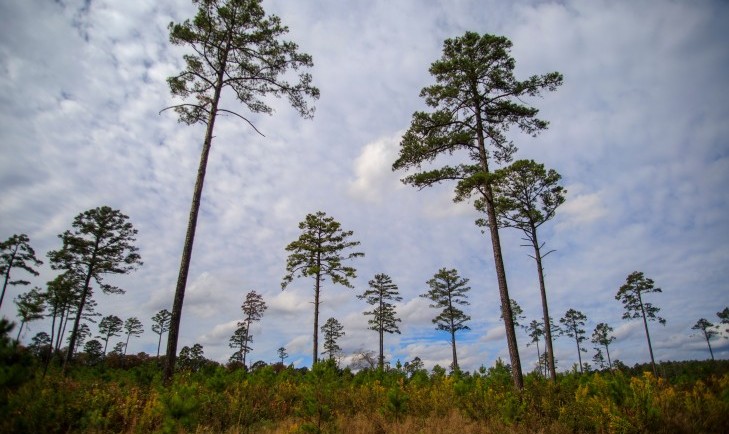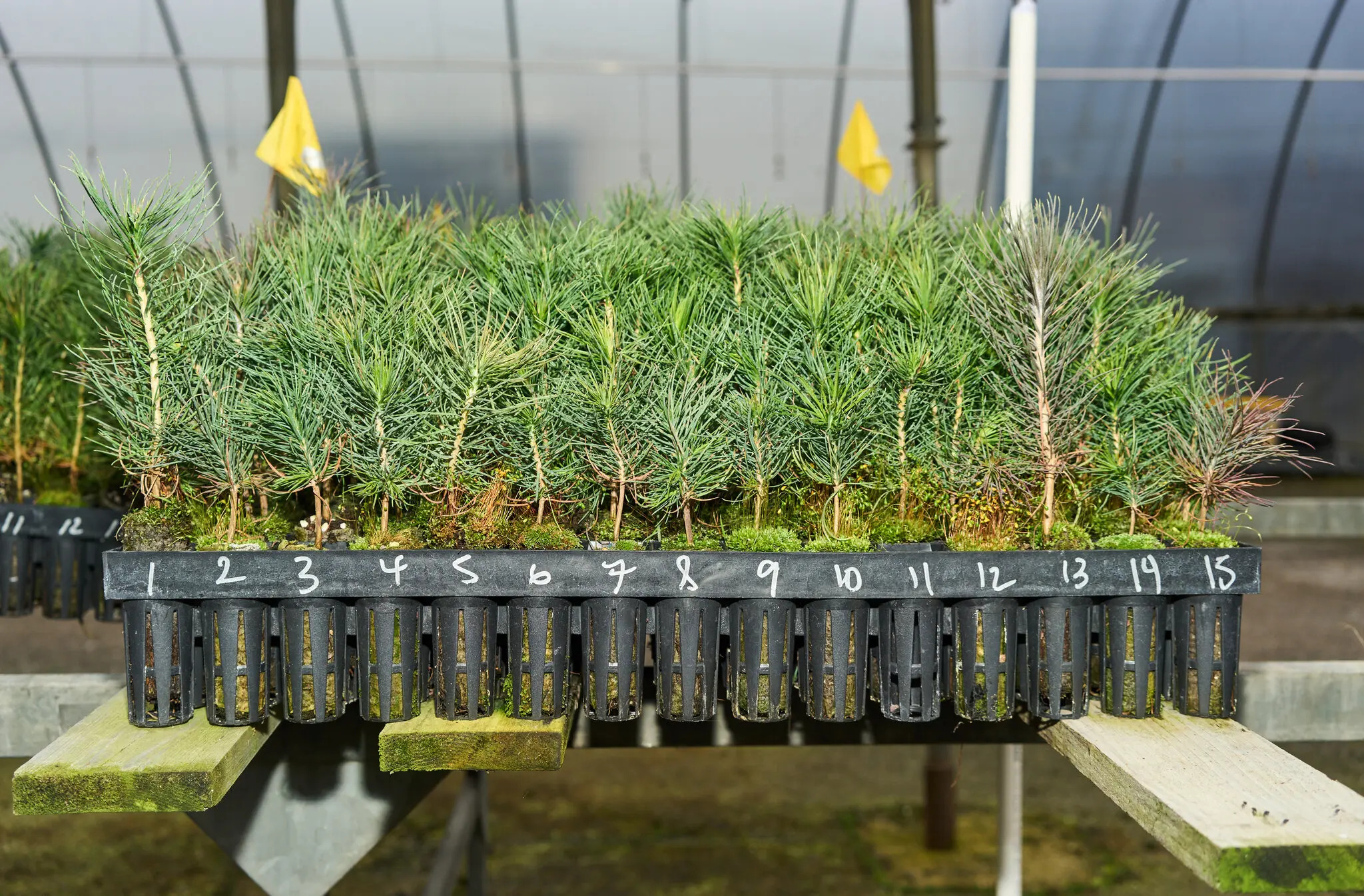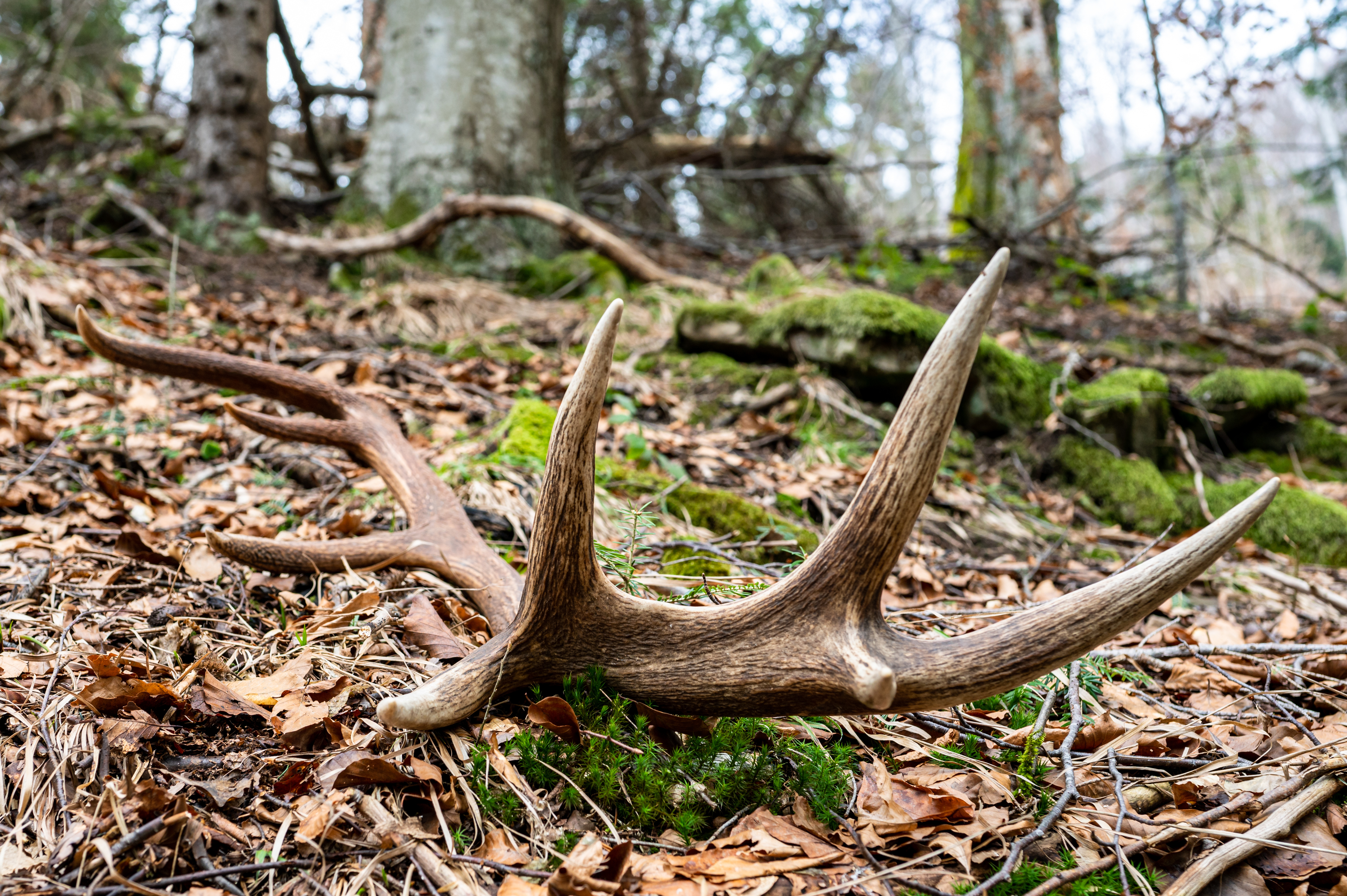05/09/24
Best of the West: Reforesting the West; coho salmon comeback; shed hunting; Pulitzer Prizes; Medal of Freedom; zebra on the lamb

The Western Governors' Association keeps you updated on the latest news in the West. Here are the top stories for the week starting May 6, 2024. (Photos courtesy of Adobe Stock Images, Ian Allen for the New York Times, and @wspd2pio).
May is Wildfire Awareness Month, and communities across the West are preparing for the summer season. An important part of the equation when it comes to avoiding catastrophic wildfires and dangerous aftereffects like flooding and erosion is promoting healthy forests. Ongoing projects across the West are doing the important work of replanting wildfire-affected areas and growing the stock of seedlings that are needed to revive landscapes that have been decimated by fire.
In Montana, much of Don Hardland’s Sheep Creek Ranch was destroyed by the 2021 Harris Mountain Fire, which burned 30,000 acres near Cascade, Montana. The property not only sustains Hardland and his family, but it's also a vital wildlife migration corridor for Yellowstone and Glacier National Parks.
The fire burned so severely that it hurt the chances of the forest regrowing naturally. In response, Hardland has teamed up with the Washington-based company Mast Reforestation, to replant more than 2,500 acres of Sheep Creek Ranch. Mast grows seedlings in its nursery in Washington to be planted specifically in this area of Montana.
 To finance this operation, Mast sells carbon removal credits generated from the reforestation project, as the project is estimated to remove 285,000 tons of CO2 equivalent from the atmosphere. This area of Sheep Creek Ranch will be held under a conservation easement for upwards of 200 years to allow the revitalized forest to mature. Mast Reforestation also has reforestation projects in Oregon and California.
To finance this operation, Mast sells carbon removal credits generated from the reforestation project, as the project is estimated to remove 285,000 tons of CO2 equivalent from the atmosphere. This area of Sheep Creek Ranch will be held under a conservation easement for upwards of 200 years to allow the revitalized forest to mature. Mast Reforestation also has reforestation projects in Oregon and California.
In New Mexico, a small forest research facility near the site of the state's largest wildfire in history is ramping up an ambitious project to restore large swaths of land in the southwest that have been destroyed by fire. The New Mexico Forest Reforestation Center in Mora, New Mexico is hoping to grow as many as 5 million seedlings a year to chip away at the deficit of 390 million seeds that New Mexico’s state forester says are needed to restore burned areas across the region. The Mora facility received a recent infusion of $11.5 million in federal funds to ramp up production and research. The center hopes to invest in research technology to test the most drought-resistant seedlings to replant in arid and fire-prone areas across the southwest.
Recent work in Utah is also adding to the bank of seeds that the West needs to replant fire-affected areas. Under the direction of the USDA Forest Service’s Reforestation Strategy, seeds are being collected from spruce trees in the Manti-La Sal National Forest, to eventually be replanted in areas across the West that have been destroyed by fire.
Also in Utah, a project is underway to restore iconic Joshua trees to the Mojave Desert, where 2.5 million trees have been lost to wildfire in the past few years. Joshua Trees, which are only found naturally in the Mojave, are a keystone species in the region, as they help numerous rare bird, reptile, insect, and mammal species survive. The new program from Conserve Southwest Utah is showing promising results in their efforts to restore Joshua trees to the desert.
In Hawaii, a recent $12 million grant from the USDA Forest Service is going towards restoring damaged forests, which will result in 2 million trees being planted. Additionally, efforts are underway to grow thousands of seedlings to be replanted in the West Maui town of Lahaina following the fires there last year. The idea is to have saplings grown and ready for planting for when residents choose to rebuild in Lahaina.
Overfishing at an all-time low: The National Oceanic and Atmospheric Administration (NOAA) reports that the number of fish stocks on the U.S. overfishing list has fallen to an all-time low of 21. In its annual “Status of the Stock” report, NOAA says that 50 fish stocks have been fully rebuilt since 2000, with the iconic Snohomish coho salmon the latest to join the list.
Coho salmon were determined to be overfished in 2018, but thanks to habitat restoration and fishery management, the species has now been returned to a sustainable level across the West Coast and Alaska. NOAA estimates that U.S. commercial and recreational fishing helped to support 2.3 million jobs and generated $321 billion in sales in 2022.
 Shed hunting: “Shed hunters” lined up at the gates of the Bridger-Teton National Forest recently for the opening of Wyoming’s shed hunting season, during which hunters in the cowboy state race to collect elk antlers from National Forest land. Each year, bull elk shed their antlers in the early spring, dotting land across the West with coveted antlers that can sometimes weigh upwards of 30 pounds.
Shed hunting: “Shed hunters” lined up at the gates of the Bridger-Teton National Forest recently for the opening of Wyoming’s shed hunting season, during which hunters in the cowboy state race to collect elk antlers from National Forest land. Each year, bull elk shed their antlers in the early spring, dotting land across the West with coveted antlers that can sometimes weigh upwards of 30 pounds.
In Jackson, close to 400 vehicles registered for the opening day of Wyoming’s season on May 1, which was reserved for residents only. Shed hunting has taken off in Western states like Wyoming and Utah in recent years, with troves of shed hunters roaming public lands looking for elk antlers to display in their homes or sell as dog chews. Such high interest has caused Wyoming’s legislature to reserve the first week of the season in certain places for state residents only.
Pulitzer: This year’s list of Pulitzer Prize winners included a new name, as the four-year-old digital outlet Lookout Santa Cruz took the coveted “Breaking News Reporting” prize for its coverage of California’s catastrophic flooding in January 2023. The online news organization, which boasts a newsroom staff of 10, “provided detailed and nimble community-focused coverage, over a holiday weekend, of catastrophic flooding and mudslides that displaced thousands of California residents and destroyed more than 1,000 homes and businesses,” according to AP editor Marjorie Miller who announced the award.
Other finalists for the breaking news award included the Los Angeles Times for its reporting on the fatal Lunar New Year shooting in Monterey Park, and the Honolulu Civil Beat’s coverage of the Maui Wildfires.
Medal of Freedom: legendary Oklahoma athlete Jim Thorpe was posthumously awarded the Presidential Medal of Freedom recently. Thorpe, the Sac and Fox Nation and Potawatomi citizen, became the first Native American to win Olympic gold during the Stockholm Olympics in 1912. He not only stood out for his performance in the pentathlon and decathlon, but Thorpe also had decorated professional baseball and football careers. The Medal of Freedom, the country’s highest civilian honor, was accepted by Thorpe’s granddaughter at the White House.
 Zebra on the loose: A zebra named Sugar was loose in the hills of western Washington for six days after recently escaping from a trailer bound for Montana. Sugar was one of four zebras that escaped the trailer, though the other three were quickly corralled by the owner. It took a community effort, including heroics from a former rodeo clown, to track down and eventually recapture Sugar, who appears to be in good condition after close to a week in the Washington woods.
Zebra on the loose: A zebra named Sugar was loose in the hills of western Washington for six days after recently escaping from a trailer bound for Montana. Sugar was one of four zebras that escaped the trailer, though the other three were quickly corralled by the owner. It took a community effort, including heroics from a former rodeo clown, to track down and eventually recapture Sugar, who appears to be in good condition after close to a week in the Washington woods.